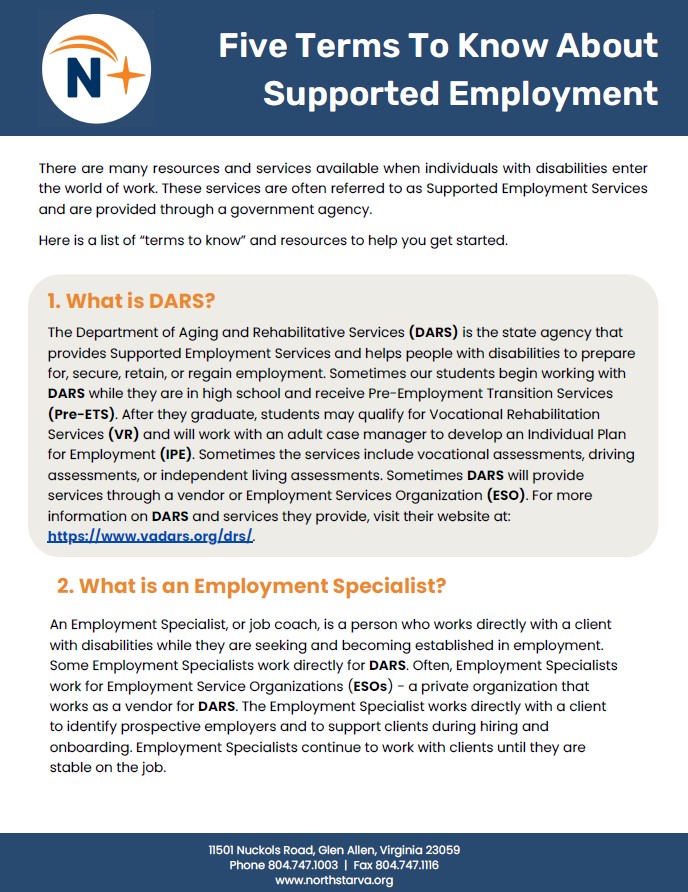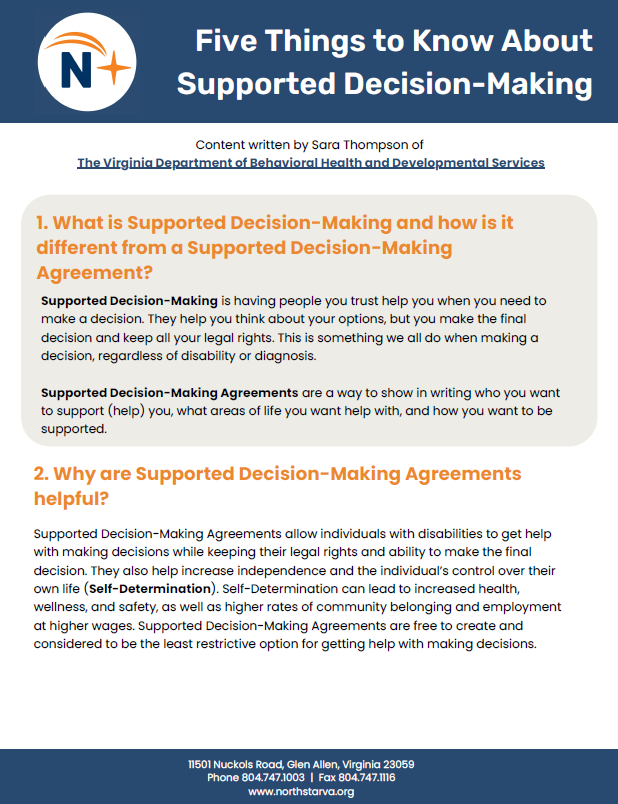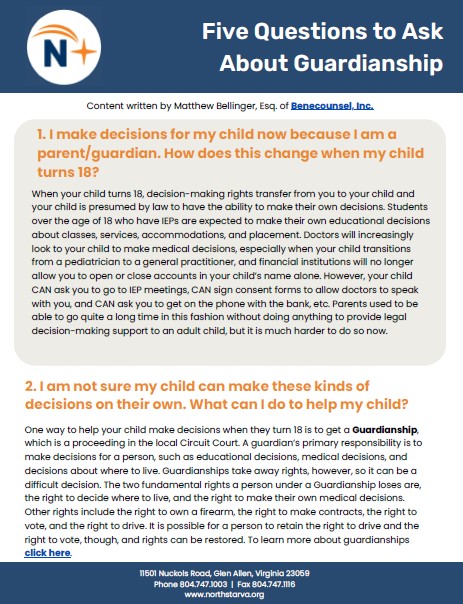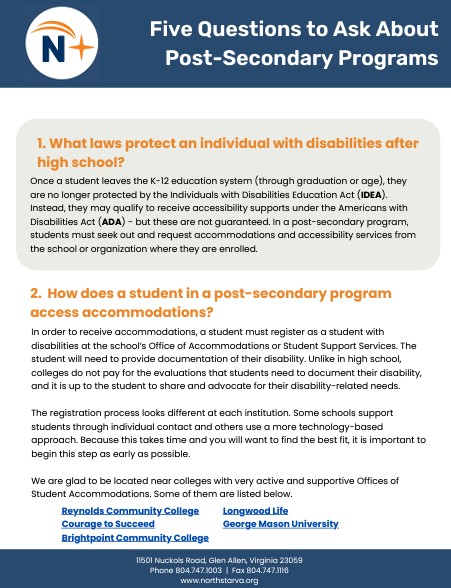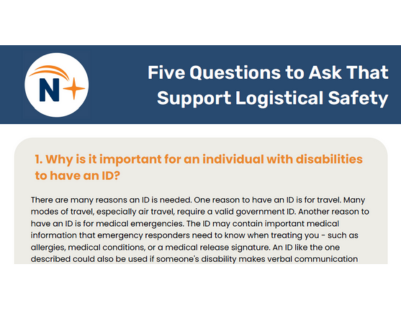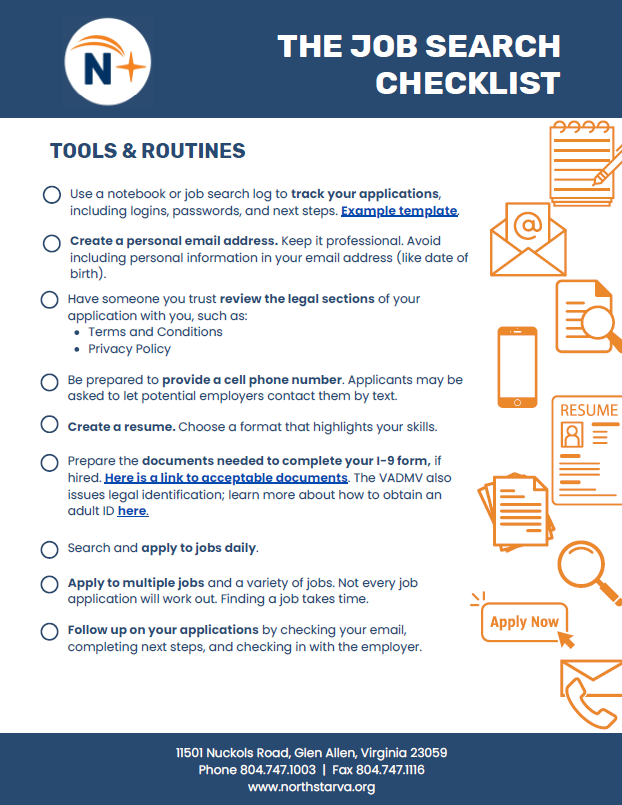Starting the next phase of life.
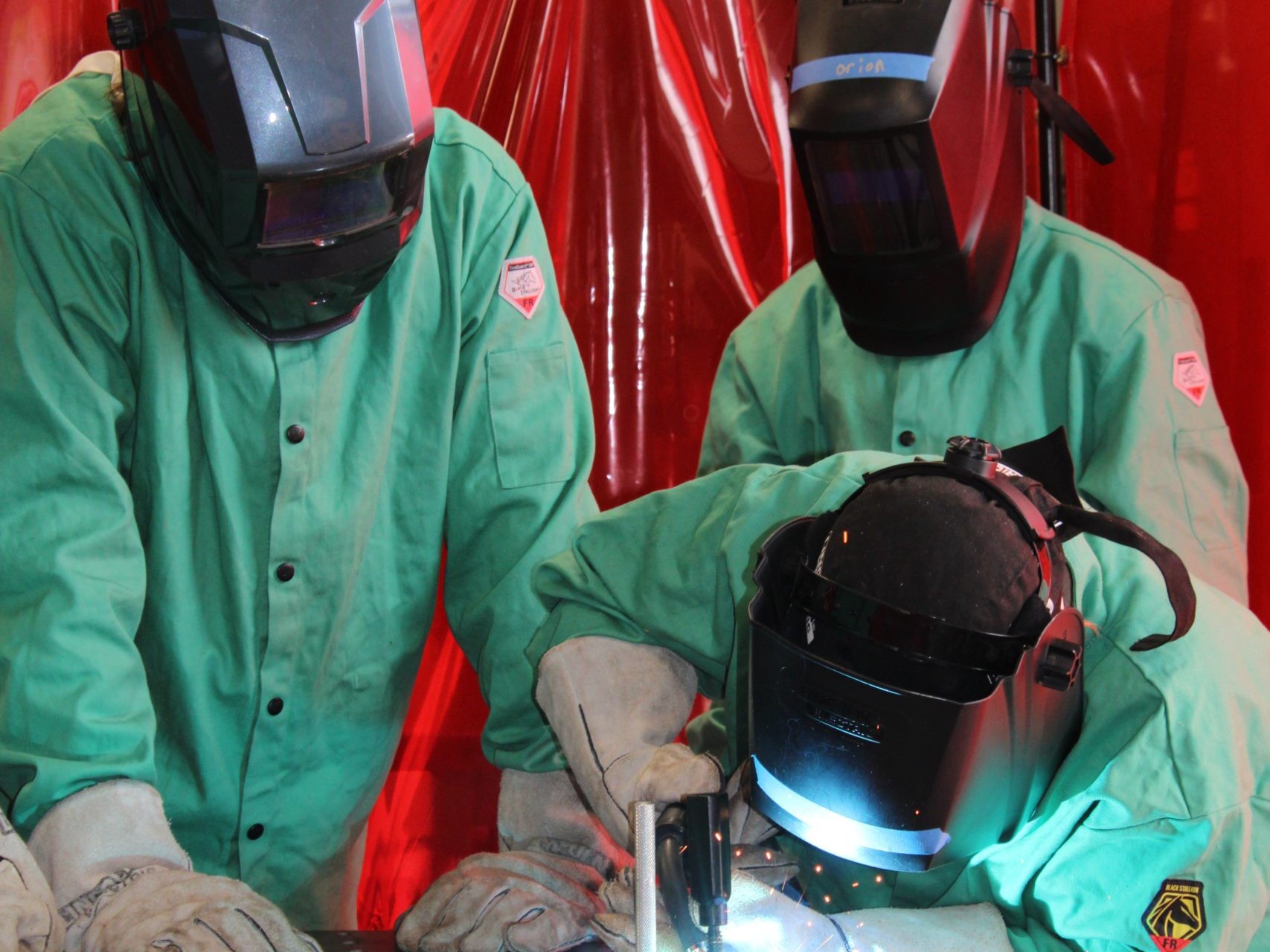
The Transition to Adulthood is when a student transitions, or moves, from school services to adult services. This is an exciting change, but it can also feel overwhelming to have so many unanswered questions.
Northstar Career Center’s goal is to provide factual information and community resources that will help individuals and families navigate this change.
One way Northstar Career Center does this, is by hosting several family education nights throughout the school year. Below you will find a list of all of the family education nights for the 23-24 school year, along with resources, links to register, and webinar video recordings (when applicable).
Supported Employment
Supported Employment is one way for individuals with disabilities to get started and succeed in the workplace. It is when a person receives supported employment services or vocational rehabilitation (job training) from a government agency. Those services depend on a person’s needs and may include a job coach, custom job placement, skills training, and employer training.
The first step is to contact the Department of Aging and Rehabilitative Services (DARS) and apply for services.
Learn more about Supported Employment and DARS through the fact sheet below.
Family Ed Night #1
The family education night focused on supported employment took place on Tuesday, October 17, 2023. Below you will find the resources presented during the webinar as well as a recording of the session.
DARS – Pre-ETS (current as of 10.17.23)
DARS – Vocational Rehab (current as of 10.17.23)
Special Abilities Network – Disability Life Planning and Waivers (current as of 10.17.23)
Supported Decision-Making Agreements
When an individual moves into adulthood, they face countless decisions about healthcare, money management, and employment. Students with disabilities may make many of these decisions on their own or they may need help from someone in their support network. It is important for families to consider the different options available so their student will have the right supports in place.
Family Ed Night #2
The family education night focused on supported decision-making agreements took place on Tuesday, November 14, 2023. Below you will find the resource presented during the webinar as well as a recording of the session.
DBHDS – Supported Decision-Making Agreements Presentation PDF (current as of 11.14.23)
Legal and Financial Planning
Sometimes when an individual moves to adulthood they may need more involved support when making life decisions. If this is the case, formal, legal agreements may be put in place to protect the individual’s health and wellbeing. These options include power of attorney, guardianship, and advance directives.
Learn more about Guardianships through the fact sheet below.
Family Ed Night #3
The family education night focused on legal and financial planning took place on Tuesday, December 12, 2023. Below you will find the resources presented during the webinar as well as a recording of the session.
Legal and Financial Planning Presentation (current as of 12.12.23)
Post-Secondary Programs
When students leave high school they may transition to college or a work readiness program. Either way, it is important to remember post-secondary education does not have to be a four year journey. After leaving high school, individuals with disabilities are guaranteed equal access to programs through the Americans with Disabilities Act (ADA). Families should visit each program’s Office of Student Accommodations to see if that organization’s experience is the best fit.
Learn more about Post-Secondary Programs through the fact sheet below.
Family Ed Night #4
The family education night focused on post-secondary programs took place on Tuesday, January 16, 2024. Below you will find the resources presented during the webinar as well as a recording of the session.
Independent Living
Independent Living means being able to make choices about things like living arrangements, transportation, leisure activities, employment, and physical care. It does not necessarily mean living on one’s own. It means not being limited in the type of life you live. There are a number of supports available to make this possible.
Learn more about Independent Living supports and funding through the fact sheets below.
Family Ed Night #5
The family education night focused on independent living took place on Tuesday, February 13, 2024. Below you will find the resources presented during the webinar as well as a recording of the session.
Commonwealth Autism Presentation PDF (current as of 2.13.24)
Sexuality & Relationships Training Brochure
Life Skills and Transition Brochure
GRTC Travel Training Presentation PDF (current as of 2.13.24)
Job Searching
Finding and holding a job has many benefits. The one people think about the most is earning money, but having a job also teaches skills like talking to others, being on time, and staying on task. Having a job is also a way to meet new people and feel good about yourself. To apply for and start a job, an individual needs to have many things in place. This list is longer when that person is just entering adulthood and looking for their very first job. The list may be longer still if that person plans to have extra support from someone like an Employment Support Specialist.
Family Ed Night #6
The family education night focused on the job search will took place on Tuesday, March 12, 2024. Below you will find the resources presented during the webinar as well as a recording of the session.
Career Support Services Presentation PDF (current as of 3.12.24)
Career Center ESO Roundtable Contacts PDF (current as of 3.12.24)
Community Engagement and Resilience
Community Engagement means being actively involved in a group of people who have something in common. Members of a community might share a favorite hobby or simply live in the same place. Being part of a community gives people a sense of belonging and purpose. It also adds to their support network and gives them others to talk to and depend on. Finding ways to engage in the community is one of the best ways to improve mental health and reduce feelings of anxiety or depression.
Resources
- Lorem ipsum dolor sit amet, consectetur adipiscing elit. — www.urlplaceholder.com
- Ut elit tellus, luctus nec ullamcorper mattis, pulvinar dapibus leo — www.urlplaceholder.com
- Lorem ipsum dolor sit amet, consectetur adipiscing elit. — www.urlplaceholder.com
Family Ed Night
Join us for a family ed night! We’ll be meeting Wednesday, August 10th at 5PM.

